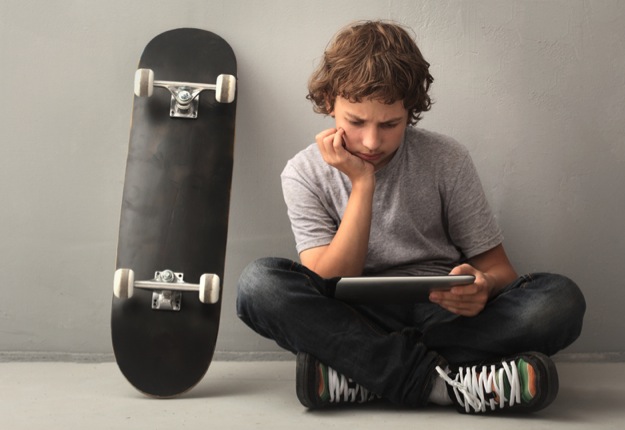One kid is on their computer in their bedroom and the other one is in the lounge on the iPad. Sound like a standard weekday afternoon?
The school pick-up is done and dusted and the pantry has been raided. It is now homework or playtime depending on the age of the child.
Many parents at this point have a recurrent guilty feeling – “They should be outside, not glued to their screens”. But the feeling is pushed away because no one is fighting, no one is crying, and no one is getting under their feet.
It’s really not that uncommon for kids in modern households to be using their playtime on their devices and connected online.
The average 8-year-old is engaging in various forms of ‘screen time’ for eight hours a day, and teens are commonly spending more than eleven hours of screen time daily.
The reality is that technology has claimed a permanent position in our everyday lives, and this includes our kid’s playtime too. But, of course there needs to be a balance in the way they are using their devices. If it interferes with their learning, sleeping or exercise, than this is an overuse that needs to be carefully managed.
Recent studies have stipulated that children should be getting zero screen time when they are under the age of two. The recommendation for older children is that they have no more than two hours of daily screen time. This includes all of their entertainment and educational viewing across TV, Internet and various smart devices.
Most kids are more than likely consuming more screen time than is deemed healthy for them, but this isn’t always problematic.
It’s about balance, and being realistic. And the reality is we can’t meet the recommended guidelines all the time.
We’re juggling so many balls as parents that sometimes we let some things slide for the sake of our sanity and a happy household
Check out this list of ways our kids having screen time and exploring the online world through their devices can potentially help their development:
Pre-schoolers
- Fine-motor development. For toddlers and pre-schoolers, working their fingers on a touch screen, and holding a mouse exercises their hand-eye coordination and improves fine-motor movements, much like finger-painting and doodling can.
- Learning cause & effect. Young children love playing with things that they can manipulate, and learning how they can interact with them. Being able to click or tap on an interactive screen and be rewarded with fun sound effects and visual displays is an exciting process for little minds.
- A teaching aid. Learning simple number and letter recognition, and identifying basic shapes and colours can all be reinforced through interactive apps and websites. This builds confidence and lays a foundation for future learning.
Primary school children
- Problem solving. Interactive games and websites can help children develop important problem solving skills and to learn to think strategically.
- Improved literacy. By children regularly writing, reading and engaging with computers and other electronic devices this helps boost and reinforce their basic literacy skills. These skills can then be applied to their daily and school life.
- Encourages reading. As children watch and enjoy popular TV shows and films during their screen time, they can become encouraged to read the books that inspired the TV series and movies, like Harry Pottery or Hunger Games.
High school children
- A creative outlet. With endless online resources at their fingertips, teens are able to harness the Internet to express their creativity. They can create and publish their own profiles, films, animations, memes, books, blogs and Wikis to express their personalities and their passions.
- An information resource. TV and the Internet provide up-to-the-minute news and analysis on current events. Being informed about these topical issues helps to develop teens’ political and social knowledge.
- Social networking. Being a teenager can be an isolating time. But through the instant communication tools of email, instant messaging, text messages and social media, teens are able to communicate with like-minded friends, as well as keep in regular contact with their family.
How much screen time are your kids having each day? How much do you think they should be having? SHARE with us in the comments below.




















4:08 pm
1:33 pm
1:02 pm
8:19 am
- «
- 1
- 2
Post a commentTo post a review/comment please join us or login so we can allocate your points.